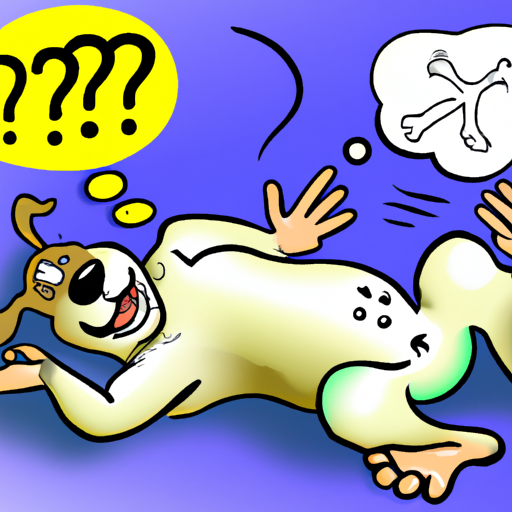H2: Understanding The Canine Reflex Mechanism
You have probably noticed it before. You’re giving your beloved pet a belly rub, and their leg starts kicking uncontrollably. This amusing spectacle is more than a quirky habit. It’s a reflex action triggered by nerves in your dog’s skin. When you scratch or tickle your dog’s belly, it sends a message to the brain via the spinal cord. This results in the leg kicking, almost like when a doctor taps your knee to test your reflexes.
H2: The Purpose of The Canine Scratch Reflex
This reflex serves a protective purpose. In the wild, a dog might use it to shake off insects or irritants on their skin. It’s an automatic response designed to protect your pooch from threats they might not even be aware of.
Consider the following points:
- The Scratch Reflex is Protective: It’s an instinctual response to potential danger or discomfort.
- It’s Not Always About Pleasure: While some dogs might enjoy a good belly rub, the kicking doesn’t necessarily mean they’re enjoying the experience.
H2: The Science Behind The Scratch Reflex
The science behind this comical kicking is fascinating. The canine nervous system is a complex network of nerves that transmit signals between the brain and the rest of the body. There are certain spots on a dog’s body – often the belly or the flank – where the nerves are more sensitive. When you hit these “sweet spots,” you’re actually activating bundles of nerve endings, known as the “scratch reflex.”
Table 1: The Canine Nervous System
| Nervous System Component | Function |
|---|---|
| Brain | Processes and interprets information from nerve signals |
| Spinal Cord | Transmits signals to and from the brain |
| Nerves | Carries signals between the spinal cord and the rest of the body |
H2: Observing Your Dog’s Responses
Each dog will have different sensitivities and responses. Some might kick up a storm with the slightest touch, while others may remain blissfully still during their belly rubs. It’s important for you, as a caregiver, to understand your dog’s unique responses and respect their comfort levels. If your dog seems distressed or uncomfortable when kicking, it might be best to avoid their sensitive spots.
H2: When Kicking Might Indicate A Problem
While this kicking reflex is generally harmless, excessive or sudden onset of this behavior could indicate a medical issue, such as a skin condition or neurological disorder. If you notice any changes in your dog’s reactions, it’s always wise to consult with a veterinarian.
Frequently Asked Questions (FAQs)
Q: Does the kicking mean my dog is ticklish?
A: Not necessarily. While dogs can have sensitive areas, their response to being tickled is not the same as humans.
Q: My dog kicks a lot. Should I be worried?
A: If the kicking is excessive or if your dog seems distressed, it’s worth consulting with a vet.
Q: Can I stop my dog from kicking when I scratch them?
A: It’s a reflex action, so it’s not something your dog can control. However, you can avoid their “sweet spots” to minimize kicking.
Q: Does every dog have a “sweet spot”?
A: Most dogs do, but the location and sensitivity can vary between individuals.



